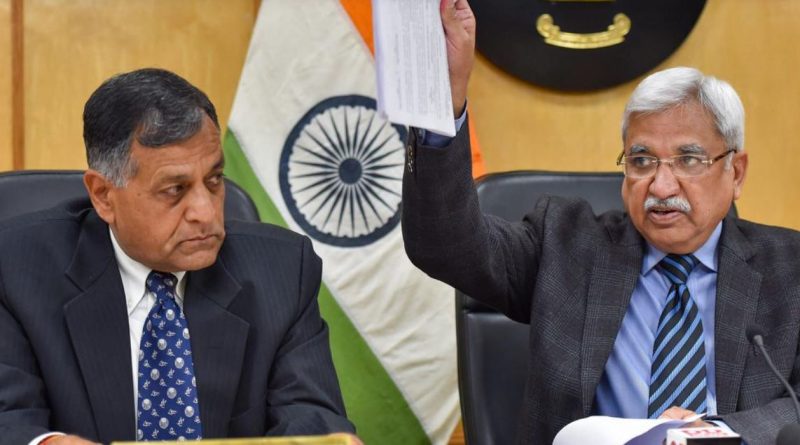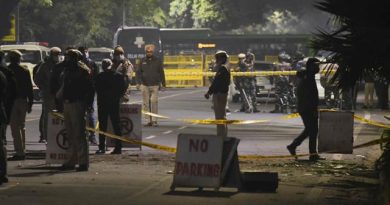Opinion : As BJP pours communal fuel on Delhi poll, Election Commission is turning blind eye
The BJP has pushed a hate-filled campaign focused on the Citizenship Amendment Act.
Over the last month, the Delhi Assembly election campaign has witnessed unprecedented hate fueled by the Bharatiya Janata Party. Ignoring core concerns such as health, education and infrastructure, the ruling party at the Centre has turned the protests against the discriminatory Citizenship Amendment Act into a Hindu vs Muslim fight in an attempt to fish for votes in the communal chasm.
Setting the stage for the toxic campaign, BJP leader Anurag Thakur, who serves as Minister of State for Finance, addressed a meeting on January 27 at which he led the crowd in chant demanding that “traitors of the nation” should be shot. The effect of this provocation was felt on January 30 at Jamia Millia Islamia, where a gunman opened on peaceful protestors.
Two other shootings have followed: one at Shaheen Bagh on February 1 where women have been protesting against the Citizenship Amendment Act for over 50 days and another at Jamia the next day, where two men on a scooter shot bullets, supposedly in the air, and escaped.
Anurag Thakur alone cannot be blamed for this instigation. The day before Thakur’s despicable act, the same chant was heard at a roadshow conducted by Union Home Minister Amit Shah, who has firmly focused his campaign on the peaceful Shaheen Bagh protests and the citizenship law.
Though the BJP has tried to distance itself from this chant, claiming that it could not be held responsible for the actions of some individuals, the party’s intentions were reiterated on February 2 when it released campaign songs for the Delhi elections. In the videos, the party has attempted to blatantly pit Hindus against Muslims and has turned Shaheen Bagh into a test of patriotism. The message is clear: if you support the protests, you are a traitor.
In all this, the Election Commission of India, which is constitutionally mandated to conduct free and fair polls, has failed spectacularly. While it removed Thakur from the list of BJP star campaigners last week after his controversial public meeting, the commission curiously failed to order that a criminal cases be registered against Thakur. As former chief election commissioner SY Quraishi pointed out, Thakur’s speech falls squarely under Section 153 of the Indian Penal Code, which punishes statement made wantonly to create riots. In this case, Thakur’s statements led to actual violence on the ground.
The Election Commission also failed to decisively intervene against BJP MP Pravesh Saheb Singh, who declared that Delhi residents should choose their representatives wisely because the people of Shaheen Bagh would enter their homes and rape women.
It is not as though the commission lacks the authority to intervene. In other states, the commission has not only ordered criminal cases to be filed, it had made sweeping changes in the police structure by replacing officers when it suspected to be biased. But in Delhi, the commission on January 30 chose to accept the recommendations of the Union Home Ministry to extend the tenure of police commissioner Amulya Patnaik by a month. It did so on the same day that Delhi Police personnel had turned into mute spectators and watched as a Hindutva fanatic shoot at Jamia students. The least the commission could have done was to bring an officer with a good reputation from another state to manage the police during the elections.
If the commission cannot ensure that the election campaign in India’s capital is free from communal vitriol, can it be trusted with conducting free and fair polls elsewhere?




